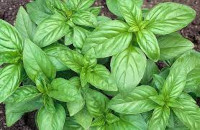Effect of Basil Leaf Extract on Diabetes: A Systematic Review and Meta-Analysis
Main Article Content
Abstract
The pharmacological properties of basil (Ocimum basilicum L.) have been widely researched for its antidiabetic activity. However, its potency in lowering serum glucose levels is still under investigation. Determination of the effect of basil leaf extract as an antidiabetic drug was the aim of this systematic review. Literature searches were conducted using online databases for peerreviewed articles on basil extract in diabetic rats. A random effect model was used to pool the effect size. Seven studies were included in this review, and there was a statistically significant difference in plasma glucose levels between the diabetic group and the group with the Basil extract intervention. The most significant difference was observed at a concentration of 100 mg/kg (MD: −265.59; 95% CI: 419.49 to 111.69; p< 0.00001). Thus, it could be concluded that basil leaf extract can lower blood glucose levels in diabetic animal models.
Downloads
Article Details
Section

This work is licensed under a Creative Commons Attribution-NonCommercial-NoDerivatives 4.0 International License.
How to Cite
References
WHO Report of the first meeting of the WHO global diabetes compact forum. 2021. [Virtual meeting]. [cited June 2022]. Available from https://www.who.int/publications/i/item/9789240045705
Sun H, Saeedi P, Karuranga S, Pinkepank M, Ogurtsova K, Duncan B.B, Stein X, Basit A, Chan J. IDF Diabetes Atlas: Global, regional and country-level diabetes prevalence estimates for 2021 and projections for 2045. Diabetes Res Clin Pract. 2022; 183: 109119.
Riskesdas LN. Ministry of Health of the Republic of Indonesia Research and Development Agency for Basic Health Research Main Results. Ministry of Health Republic of Indonesia: Jakarta, Indonesia. 2018: 1–100
Williams R, Karuranga S, Malanda B, Saeedi P, Basit A, Besançon S, Bommer C, Alireza E, Ogurtsova K, Ping Z, Colagiuri S. Global and regional estimates and projections of diabetes-related health expenditure: Results from the International Diabetes Federation Diabetes Atlas, 9th edition. Diabetes Research and Clinical Practice. 2020; 162:108072.
Dieren SV, Jolin WJB, Schouw YT. Diederick EG, Bruce N. The global burden of diabetes and its complications: An emerging pandemic. Eur J Cardiovasc Prev Rehabil . 2010;17(1): s3–s8.
Esquivel MA & Lansang MC. Optimizing diabetes treatment in the presence of obesity. Cleve Clin J Med. 2017; 84(7): S22.
He JH, Chen LX, Li H. Progress in the discovery of naturally occurring antidiabetic drugs and in the identification of their molecular targets. Fitoterapia. 2019;134: 270–289.
Tseng CW, Masuda C, Chen R, Hartung DM. Impact of higher insulin prices on out-of-pocket costs in Medicare Part D. Diabetes Care. 2020; 43(4): e50–e51.
Moucheraud C, Lenz C, Latkovic M, Wirtz VJ. The costs of diabetes treatment in low- and middle-income countries: A systematic review. BMJ Global Health. 2019; 4(1): e001258.
Stoian AP, Banerjee Y, Rizvi AA, Rizzo M. Diabetes and the COVID-19 pandemic: How insights from recent experience might guide future management. Metab Syndr Relat Disord. 2020; 18(4): 173–175.
Dhama K, Sharun K, Gugjoo MB, Tiwari R, Alagawany M, Iqbal Yatoo, Thakur P,Hafiz MN, Chaicumpa W, Michalak I, Elnersr S,Faraq M. A comprehensive review on the chemical profile and pharmacological activities of Ocimum basilicum. Food Rev Int. 2021: 1–29.
Ezeani C, Ezenyi I, Okoye T, Okoli C. Ocimum basilicumextract exhibits antidiabetic effects via inhibition of hepatic glucose mobilization and carbohydrate metabolizing enzymes. J Intercult Ethnopharmacol. 2017; 6(1): 22–28.
Abdelrahman N, El-Banna R, Arafa MM, Hady MM. Hypoglycemic efficacy of Rosmarinus officinalis and/or Ocimum basilicum leaves powder as a promising cliniconutritional management tool for diabetes mellitus in Rottweiler dogs. Vet World. 2020; 13(1): 73–79.
Almalki D. Renoprotective effect of Ocimum basilicum (basil) against diabetes-induced renal affection in albino rats. Mater Sociomed. 2019; 31(4): 236–240.
Al-Subhi L, Ibrahim WM. Two cultivars of Ocimum basilicum leaves extracts attenuate streptozotocin-mediated oxidative stress in diabetic rats. Pak J Biol Sci. 2020; 23(8): 1010–1017.
Othman MS, Khaled AM, Al-Bagawi AH, Fareid MA, Ghany RA, Habotta OA, et al. Hepatorenal protective efficacy of flavonoids from Ocimum basilicum extract in diabetic albino rats: A focus on hypoglycemic, antioxidant, anti-inflammatory and anti-apoptotic activities. Biomed Pharmacother. 2021; 144: 112287.
Teofilovic B, Golocorbin–Kon S, Stilinovic N, Grujic–Letic N, Raškovic A, Mooranian A, Salami HA, Mikov M. Pharmacological effects of novel microvesicles of basil, on blood glucose and the lipid profile: A preclinical study. Scientific Reports. 2021;11(1): 22123.
Widjaja SS, Rusdiana, Savira M, Amelia R. Antihyperglycemic, endothelial protection and toxicity study of basil leaves extract on diabetic rats. Maced J Medical Sci. 2021; 9(A): 589–594.
Joshi R. Chemical composition and antimicrobial activity of the essential oil of Ocimum basilicum L. (sweet basil) from Western Ghats of North West Karnataka, India. Anc Sci Life. 2014; 33(3): 151–156.
Hannan JMA, Marenah L, Ali L, Rokeya B, Flatt PR, AbdelWahab YHA. Ocimum sanctum leaf extracts stimulate insulin secretion from perfused pancreas, isolated islets and clonal pancreatic β-cells. J Endocrinol. 2006; 189(1): 127–136.
Widjaja SS, Rusdiana, Savira M. Glucose lowering effect of basil leaves in diabetic rats. Macedonian Journal of Medical Sciences. 2019; 7(9): 1415–1417.
Sari FA, Sandhika W, Yuliawati TH. Tulsi (Ocimum sanctum) Leaf ethanol extract reduces inflammatory cell infiltration in aspirin-induced gastritis rats. Jurnal Kedokteran Brawijaya. 2020; 31(1): 49–52.




